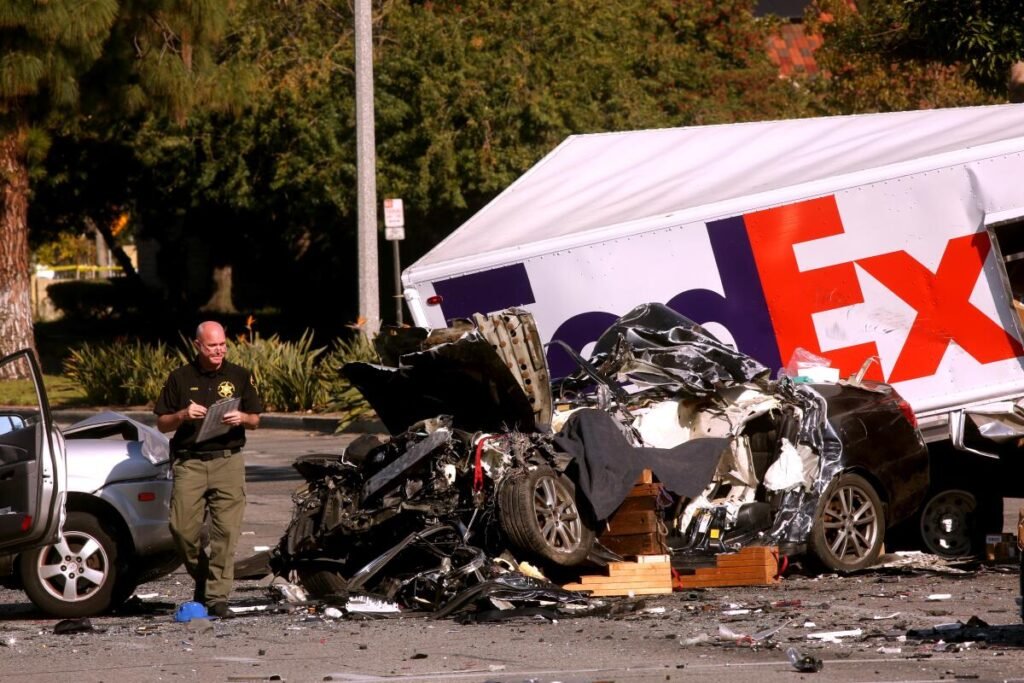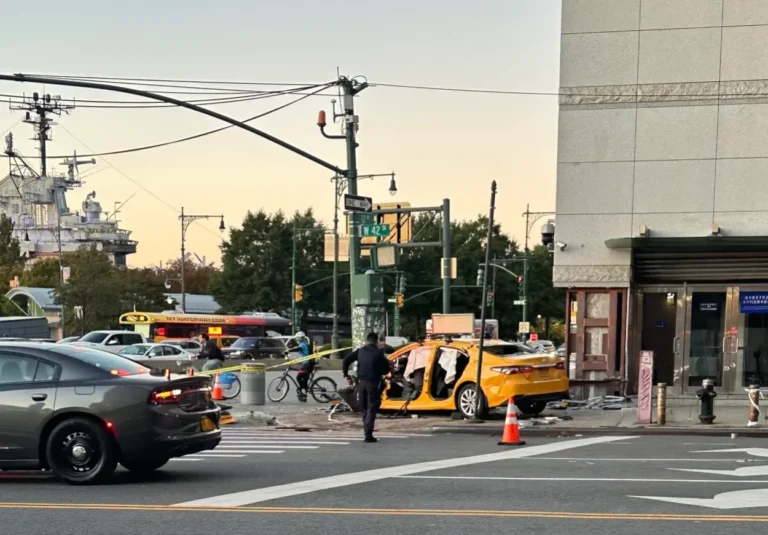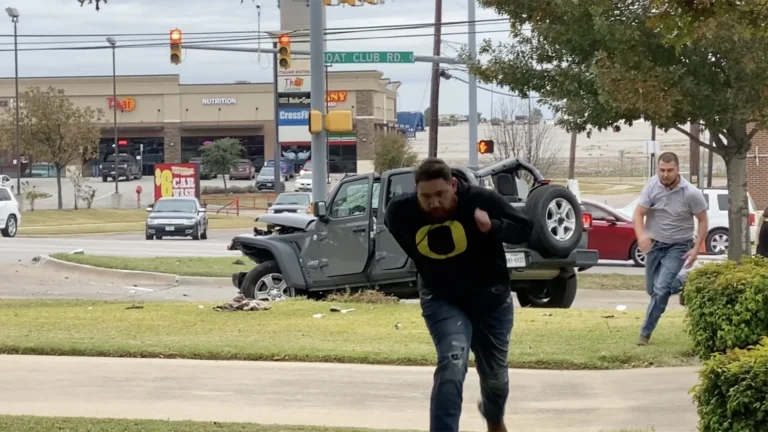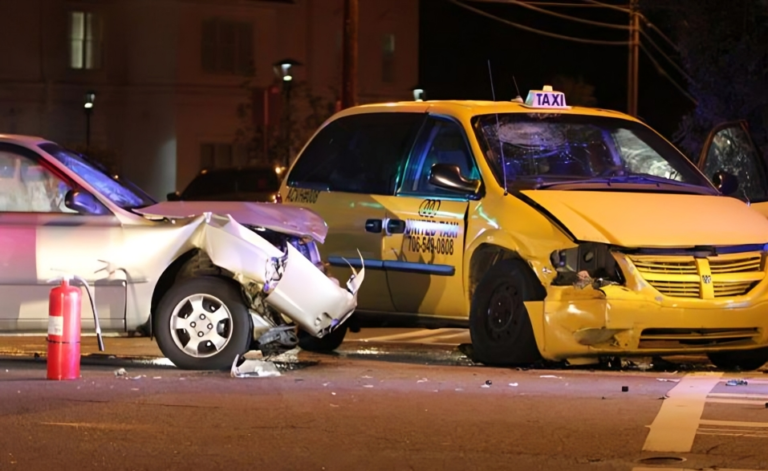Accidents involving commercial vehicles can turn life upside down in an instant. Whether it’s a delivery truck, rideshare car, or construction vehicle, these collisions are often more complex than typical car accidents. If you’ve been hurt by a commercial vehicle in New York, knowing what to do next isn’t just helpful—it’s essential. Consulting a personal injury lawyer in New York can provide the guidance you need to navigate the legal process and protect your rights.
Here’s a practical guide on how to protect your rights, prioritize your recovery, and avoid common mistakes after a commercial vehicle accident.

Need to Talk to Someone About a Commercial Vehicle Injury in NYC?
If you’re unsure what your next step should be, help is available.
- Address: 147 East 82nd Street Suite 6B, New York, NY 10028
- Phone: (917) 941-4094
- Email: Ira@irapintel.com
1. Your Health Comes First — Get Medical Attention Immediately
After an accident, adrenaline can mask pain. Even if you feel okay, it’s important to get checked by a doctor. Some injuries, like internal trauma or soft tissue damage, don’t show immediate symptoms. A prompt medical evaluation not only protects your health but also helps document the connection between the crash and your injuries—something that may matter down the line.
If emergency services arrive at the scene, let them evaluate you. If not, make an urgent care or hospital visit as soon as possible.
2. Identify the Commercial Vehicle and Its Driver
In a busy city like New York, it’s easy to overlook details in the moment. But if you can, take note of:
- The company name or logo on the vehicle
- The vehicle’s license plate
- The driver’s name and employer (if available)
- Any other identifying details, like truck numbers or route info
This information helps establish that you were involved with a commercial entity, which can influence how your situation is handled later.
3. Document Everything at the Scene
Photos and videos from the scene are incredibly valuable. Capture the damage to all vehicles, road conditions, traffic signs, and any visible injuries. If there were witnesses, ask for their contact information. These seemingly small steps can support your version of what happened if there are later disputes.
Also, try to write down your memory of the incident while it’s fresh—what direction you were going, how the crash happened, and anything the other driver said or did.
4. Report the Incident but Be Careful What You Say
Reporting the accident to the appropriate parties is necessary. This might include the police, your insurance company, and in some cases, the commercial driver’s employer. When giving your account, stick to the facts. Avoid guessing or speculating, especially about fault or the extent of your injuries.
Simple statements like, “I don’t know,” or “I’m not sure,” are completely acceptable. Your words may be used later, so clarity and honesty matter.
5. Don’t Deal with Insurance Companies Alone
In commercial vehicle cases, you may find yourself up against more than one insurance provider—personal auto, commercial liability, company policy, and even third-party logistics firms. Their goal is often to minimize what they pay out.
You don’t have to navigate that alone.
Instead of accepting a fast settlement or signing anything quickly, consider speaking with someone who understands the process. There are professionals who can guide you through it and ensure your interests are fully represented. This is especially helpful when you’re trying to recover physically and emotionally.
6. Understand That Not All Injuries Are Visible
In the days or even weeks following the accident, new symptoms may develop. Chronic pain, emotional trauma, or complications from head injuries can appear later and require long-term care.
That’s why it’s wise not to rush into any decisions or agreements too early. Give yourself time to understand the full scope of what the injury may cost you—in terms of both your health and your daily life.
7. Keep a Record of How Your Life Has Been Affected
One of the most overlooked parts of post-accident recovery is tracking the impact on your daily routine. If you’re unable to work, take care of your children, or even get out of bed without pain, those details matter.
Consider keeping a simple journal or notes in your phone:
- Missed workdays or income
- Daily pain or discomfort
- Changes in mood, sleep, or relationships
- Appointments or medications related to the injury
These notes are not only therapeutic—they may also provide insight into the long-term effects of the crash.
8. Be Thoughtful About What You Share Online
It’s natural to want to update friends or family online after something traumatic, but it’s smart to be cautious. Insurance adjusters and company representatives may review social media activity.
Avoid posting about the accident, your injuries, or your recovery until everything has been fully resolved. What seems like an innocent update can be used to downplay the seriousness of your situation.
9. Know When It’s Time to Get Advice
There’s a difference between handling a fender-bender on your own and facing the complexities of a commercial vehicle incident. These cases often involve:
- Multiple parties
- Corporate policies
- Confusing insurance layers
- Higher potential damages
If you’re unsure where to turn, talking to someone who understands these cases can help you make informed decisions. It doesn’t mean you’re starting a legal battle—it simply means you’re exploring your options.
10. You Deserve to Focus on Healing, Not Paperwork
Most importantly, remember that your time and energy should be going toward healing. The aftermath of an accident can feel overwhelming, but the right guidance can ease that burden.
Whether it’s understanding the next step, organizing documents, or dealing with an uncooperative insurance company, you don’t have to do it alone.
Need to Talk to Someone About a Commercial Vehicle Injury in NYC?
If you’re unsure what your next step should be, help is available.
- Address: 147 East 82nd Street Suite 6B, New York, NY 10028
- Phone: (917) 941-4094
- Email: Ira@irapintel.com
FAQs
1. What should I do if I feel okay after the accident—do I still need to see a doctor?
Yes. Many injuries don’t show symptoms right away. Seeing a doctor early can prevent long-term issues and ensure your condition is properly documented.
2. Is it okay to accept the first settlement offer from the company’s insurer?
You can, but it may not reflect the full cost of your recovery. It’s often wise to review any offer carefully or consult with someone experienced before making a decision.
3. Do I have to pay out of pocket to get advice on what to do next?
Not necessarily. Many professionals offer initial consultations to help you understand your situation before any decisions or commitments are made.




